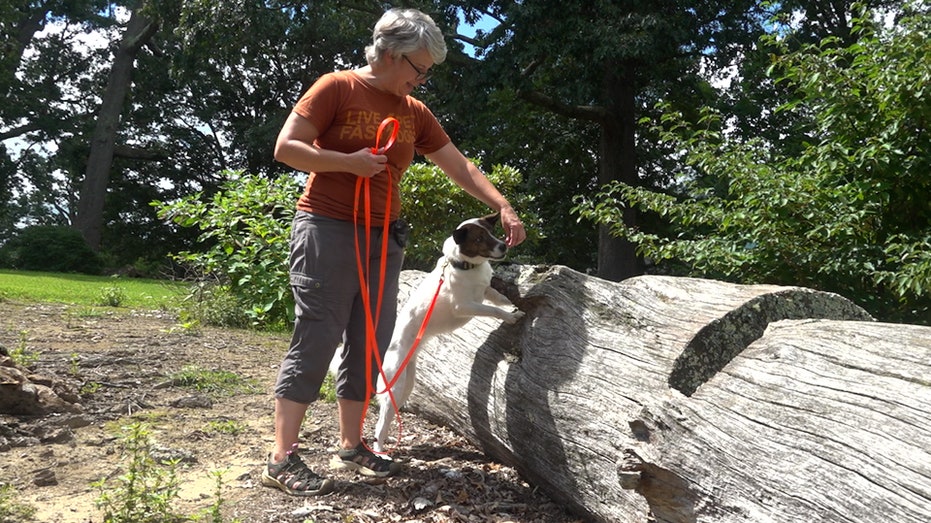Researchers at Virginia Tech have unveiled an innovative approach to combat the spread of the invasive spotted lanternfly by training dogs to detect this destructive pest. The study highlights the potential of using trained canines to locate the pest’s egg masses, which are crucial for limiting the insect’s proliferation.
The spotted lanternfly, native to Asia, was first identified in the United States in Pennsylvania over a decade ago. Since then, it has rapidly spread across 19 states, primarily impacting agriculture in the Midwest and Northeast, according to the U.S. Department of Agriculture (USDA). These pests feed on various plants and produce a sugary substance known as honeydew, which encourages mold growth and can harm local ecosystems.
Canine Assistance in Pest Control
The study involved 182 volunteer teams across the United States, pairing handlers with dogs trained to detect the scent of the lanternfly. Notably, Katie Thomas and her nine-year-old pit bull mix, Finch, participated in the study, utilizing their experience in scent work. Thomas expressed her enthusiasm, stating, “To be able to do things that we already do, that we are having a lot of fun with… train our dogs to sniff stuff, being able to apply that to something like a real problem that affects our community is really fulfilling.”
During the study, indoor tests revealed that dogs could accurately identify the lanternfly scent more than 80% of the time, while outdoor tests yielded a success rate of over 60%. These results demonstrate that dogs can outperform human searches in locating these pests.
Another participant, Carolyn Shelburne, and her nine-year-old border collie, Hermes, were among the first to pass field tests with flying colors. Shelburne emphasized the urgency of the matter: “They are everywhere, and we need to search out the eggs. The problem is it’s too late once we have the lanternfly.”
A Growing Movement to Protect Agriculture
The initiative not only focuses on curbing the lanternfly’s spread but also serves as a reminder of the broader issue of invasive species. The ability to train dogs for this purpose could lead to similar efforts against other pests, promoting environmental conservation.
As awareness of the spotted lanternfly grows, campaigns in various states encourage residents to actively participate in controlling the insect. Some states have gone as far as urging people to stomp on the pests upon sight, reflecting the serious threat they pose to local agriculture.
The research at Virginia Tech signifies a promising partnership between humans and dogs in the fight against invasive species. By harnessing the extraordinary sense of smell that dogs possess, conservationists hope to develop more efficient strategies to protect local environments.
With the potential to train any dog for this task, the program offers not only a solution to a pressing ecological problem but also a fun and engaging activity for dog owners. As the study indicates, this initiative could pave the way for future efforts to safeguard against other invasive species in regions where they have yet to establish a presence.
